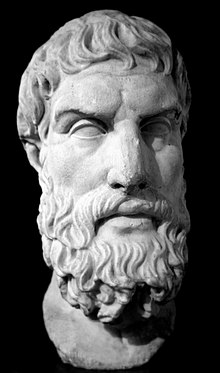In this new series I'll be summarizing various religions and philosophical systems in the simplest way possible. It should be quick and easy to read allowing us to compare and contrast . I'll only focus on their views of the following aspects:
- Nature of the cosmos and our place within it
- God?
- Evil?
- How should we live?
Place of origin: Greece
Key members: Epicurus, Hermarchus, Idomeneus, Colotes, Polyaenus, and Metrodorus
Cosmology
- Atomic materialism—everything consists of indivisible bits of matter, atoms
- Everything that occurs is the result of atoms interacting with each other
- Movements of atoms are not deterministic; sometimes they move randomly (uncertainty principle?)
- No objective meaning behind phenomena
- Freewill, though not absolute, exists
Concept of God
- Like everything else, God(s) consists of atoms
- Separated from human beings; indifferent to our world
- Neither willing nor able to prevent evil
- Lives in the perfect state of tranquility (ataraxia), the highest bliss one can achieve
- Perfect being we aim to become
Concept of Evil
- Notions of good and evil derived from the sensations of pleasure and pain
- Caused by the random nature of atoms
- Not concerned by God(s)
Way of Life
- No objective meaning of life
- One ought to fulfill one's will to attain the state of ataraxia, highest happiness
- Ataraxia: a state of tranquility, free from any worry (Nirvana?)
- To obtain happiness, one ought to pursue pleasure and refrain from pain
- Pleasure—having enough to meet basic needs, absence of bodily pain, fulfillment of the mind
- Fulfillment of the mind—using knowledge to get rid of fear from death, religions and superstitions
- Death is not to be feared. When we are, death is not. When death is, we are not. We suffer from our fear of death, not death itself. Epicurus: Death is nothing to us.
- Excessiveness could lead to unfulfilled desires thus more suffering (suffering caused by desires; corresponds with Buddhism)
- Virtue as a means to achieve happiness

I like this, power to the freethinking individuals! Could you recommend this young mind a book?
ReplyDeleteOf course! don't know what you are interested in right now but I always love reading The Four Agreements and Peaceful Warrior; relatively easy to digest. 1st, realize most if not all beliefs you currently have came from your family, friends, and society. 2nd, examine them to see they are not necessarily true. 3rd, keep the ones that serve you and get rid of the ones that don't. THEN you're freethinking. As Apollo said, "Know thyself."
ReplyDelete